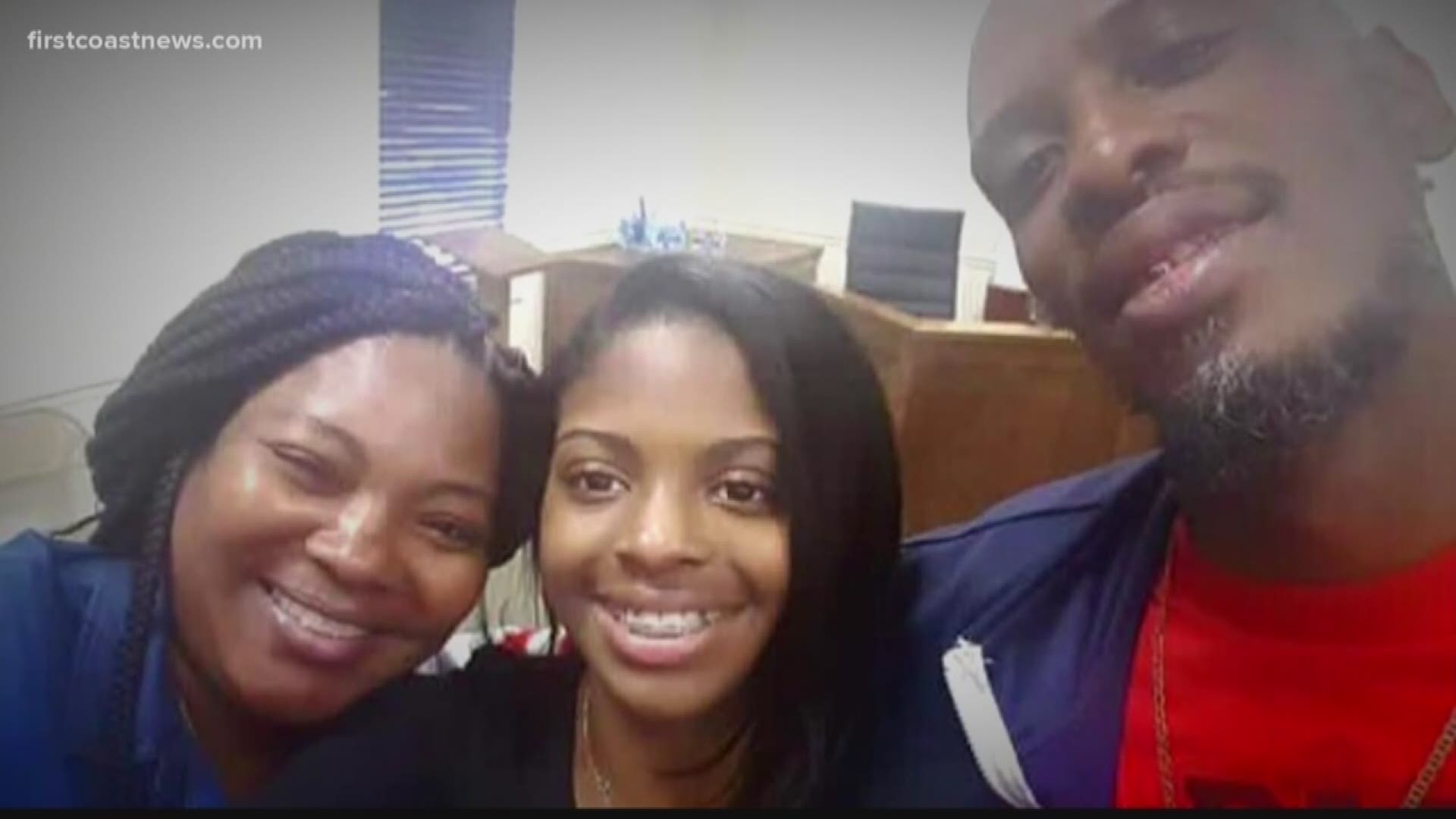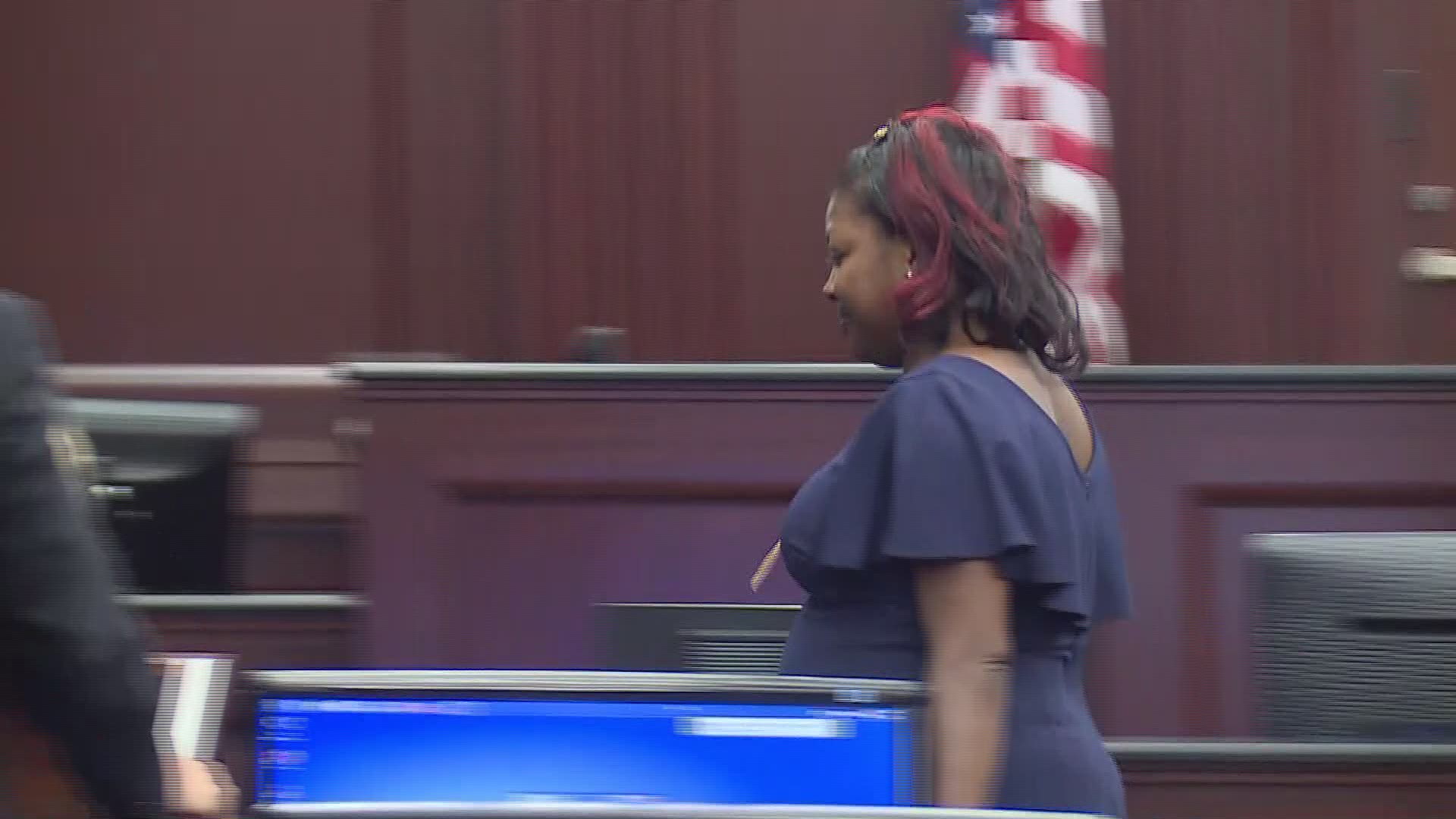Each July 10, Shanara Mobley cuts a slice of cake for herself and then cut a piece for her missing child, Kamiyah. She’d wrap Kamiyah’s piece and place it in the freezer just in case. Another birthday. Another year without her daughter. Another cake. Another wish.
This year there won’t be any cake. And who knows about next year or the year after that, because only one of Mobley’s wishes came true.
In January 2017, after the National Center for Missing and Exploited Children received two tips, investigators with the Jacksonville Sheriff’s Office found Kamiyah Mobley living in rural South Carolina. Kamiyah was Alexis Kelli Manigo.
Mobley was ecstatic to hear the words she waited 18½ years to hear: We found your daughter. The abducted child was happy, she learned. She was healthy. She was living a good life.
That’s where Shanara Mobley's storybook ending ended.
Having a baby was supposed to make Mobley’s life right, perhaps for the first time. She was molested at age 9, and it continued for two years. By 13, she was pretty much on her own.
Mobley said she ran the streets pretty hard in her younger years — running away, getting into trouble. Her life at the time was half circumstance and half the result of choices she made as a teenager, she said. She was sheltered from very little. When she went to school, she went to Eugene Butler Middle.
But much of the time she chose not to go.
Her home life was spent bouncing between relatives and friends or lying about her age so she could get live-in babysitting jobs. Jobs meant shelter and money. Money meant freedom to run the streets, to skip school, to do what she wanted.
Mobley was 15 when she learned she was pregnant, the result of carrying on with a man seven years older, a man whose mother lived across the street from an uncle’s house where she was staying.
She had been pregnant before, when she was 14, but miscarried. This time would be different, she vowed. This time, God was sending her a sign to get her life in order, to stop running away, to have a purpose.
She exercised. She ate well. She tried to stay away from smokers.
While in a juvenile detention program she met a teen mom with a baby named Kamiyah. The baby was beautiful, she said, and she loved how the name rolled off her tongue. It made her happy.
Mobley filled her room at her uncle’s house with new and used baby clothes and a stark white bassinet — gifts from a church as a well as a counselor at the juvenile program.
Doctors wanted to induce labor on June 30, 1998, and told the teenager to go to the hospital. Mobley refused. She was scared. Nine days later her water broke.
Her uncle drove her to the hospital late that Thursday night. When he and his lady friend were asked by a doctor to step out into the hallway while Mobley was given an epidural, they left the hospital. The baby’s father, Craig Aiken, was in jail on a drug charge. Mobley’s mother lived in Central Florida.
The child was left on her own to have a child, and 8-pound Kamiyah was born the next morning.
“Oh man, I was ready to go. I was ready to go then. I’m like, 'This is really my baby; so big, so beautiful.' And the smiles we gave to each other, I’m like, ‘This is my baby.’ I was anxious. I was ready to go then. I wanted her to sleep in her bassinet,” she said.
A woman wearing scrubs who had been lingering around the hospital since the night before came into Room 328 and told the teen mom she was a nurse and had been assigned to care for her and her baby.
They spent the next five hours together. At 3 p.m., the woman said she had to take the baby to get checked for a fever. She never returned.
That woman was Gloria Williams.
Mobley went back to her uncle’s house, but the bassinet, bottles and clothing she had in her room for her daughter haunted her. So she left and went back to her old ways. She had nightmares. She self-medicated. She tried to kill herself.
“I just didn’t want to be here,” she said. “Everyday people got to stay around me all day, every day to watch me. Nobody is leaving me unattended,” she said.
Over the next 2½ years, Jacksonville Sheriff’s Office investigators followed more than 2,000 leads from as far away as Nova Scotia, but none led to Baby Kamiyah. No matter how far the net was cast for suspects, police kept a close eye on the Mobley and Aiken families.
It wasn’t just police who considered Mobley a suspect.
“Everybody was saying I sold the baby, I gave the baby away,” she said. “Come on now, if I thought it was going to be this hard, I could have got an abortion. I could still be running the streets. I could have been doing drugs, drinking, all that. I chose to do right: to have a beautiful baby.”
Five years passed before she had another baby and got to experience motherhood for more than eight hours. LaShawnye is 15 now.
Mobley continued to have children: Christopher, Chrisanna, Savannah and Journye, who, at 3, is the youngest. She said she’d like to have another child. If she does and it's a girl, she plans to name her Starr Blessed Faith Mobley. Mobley’s nickname is Starr.
“God always gives me what my heart desires,” Mobley said. Motherhood, she said, has always been her desire. To her, it’s a purpose. The children in her home shower her with love and attention on Mother’s Day. This past May she received slippers and lotion from her children living in her home.
Sitting at her large kitchen table, Mobley began to cry. She tilted her head toward the stairway: “Those kids up there love me. They love me and nobody can take that away from me.”In this Sept. 28, 1998 photo, Carol Mellott puts the finishing touches on a sign on a JTA bus that announces a $250,000 reward for the return of newborn Kamiyah Mobley. Husband Donald gets another sign ready for another bus.
BROKEN TRUST
Mobley has issues with trust. Men come and go in her life. She said it’s rare for her to have a relationship with a man that lasts longer than two years. She fears the worst when her children want to step outside to play. Most play is inside, she said.
When Williams abducted Kamiyah, she acted alone. Still, Mobley said, she feels like the community still faults her, believing she played a part in order to get money from the hospital.
She said her daughter, LaShawnye, who is heading into the 10th grade, argues with people on Facebook in defense of her mother.
Her children, she said, shouldn’t have to struggle like she did, and does.
Now, to Mobley, it feels as if Williams and her own daughter are conspiring against her and making a mockery of her life. On Friday, Jan. 13, 2017, State Attorney Melissa Nelson answers questions following the announcement that Kamiyah Mobley had been found alive and well in South Carolina following her abduction 18 years earlier. Jacksonville Sheriff Mike Williams listens.
"She has been failed by so many," said Carl Harms, a victims' advocate with the Office of the State Attorney for the Fourth Judicial Circuit. Harms was assigned the case to help Mobley understand the court process and to have a voice.
In February, Williams changed her not guilty plea to guilty, essentially forgoing a full trial.
By doing so, a potential life sentence was off the table and the prosecutor and Williams’ defense attorney agreed to a sentence of no more than 22 years. In May, there was a sentencing hearing. Mobley sat hunched over much of the time and cried. Her daughter sat several rows back, either with an attorney from South Carolina or by herself.
When called to the witness stand, Mobley lashed out at Williams. She wanted her daughter to understand something: “I’m still hurting. I’m your mother, Kamiyah. I’m your mother.”
Mobley told the judge she thought Williams should get the death penalty.
“Obviously that is not appropriate for this case,” said Assistant State Attorney Alan Mizrahi. “So do you recommend the maximum sentence the court can give?”
Yes, Mobley said, adding she wished there was a way to get a court order so that her daughter and Williams could not have any contact.
That way she could finally start a relationship with her daughter. "I need her away, far away, where she cannot contact my baby, where my baby cannot get to her,” she said.
The no-contact order wasn’t pursued again in court.Kamiyah Mobley, who was raised with the name Alexis Kelly Manigo, sits in the courtroom during the second day of the sentencing hearing of Gloria Williams on Friday, May 4, 2018 at the Duval County Courthouse in Jacksonville, Florida. [Will Dickey/The Florida Times-Union]
BROKEN DREAMS
Sitting at her kitchen table late last month, Mobley said she was feeling an unbearable weight of stress and depression. She worried about the impact of it all on her other children.
“This is what Gloria [Williams] and Kamiyah brought upon my children. And I truly feel it in my heart; I just wish she would not have come back. I really do. Because [Kamiyah] came back, this has made a mockery of my life.
“I’m still lost. I don’t have a relationship with my child," she said. "What did I gain? Nothing."
She said she hopes Williams dies in jail. Then maybe, just maybe, she and her daughter will have a relationship.
“As long as she can call her and go see her, that’s her momma,” Mobley said. “I’m about to start calling her Alexis so I won’t be hurt. I’m serious. I’m serious. I have to start doing things where I don’t hurt no more.”
Looking into a video camera, Mobley had this to say to her daughter:
“If you want to be Alexis, be Alexis. If you want to be her child, be her child. This is a battle that I can’t keep fighting. This is a battle that nobody is going to win."
Read more from our news partners.


